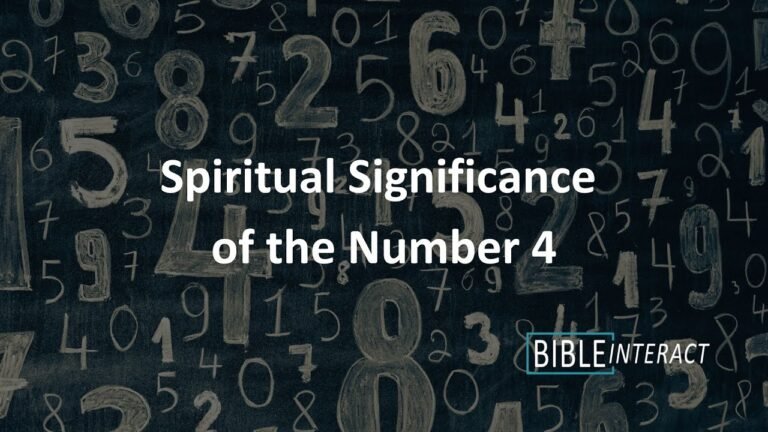The Legacy of Ahab: A Biblical Exploration
In the rich tapestry of biblical history, King Ahab stands out as a complex and often controversial figure. Reigning over Israel during the tumultuous period of the 9th century BCE, Ahab’s legacy is marked by his tumultuous relationship with the prophet Elijah, his pursuit of power, and his infamous marriage to Jezebel. The narratives surrounding Ahab in the Bible not only highlight the challenges of leadership and the struggle between faith and idolatry but also reflect broader themes of morality, accountability, and divine intervention. As we delve into Ahab’s story, we uncover lessons that resonate through the ages, making his life a compelling study for both theologians and history enthusiasts alike.
What was Ahab’s sin in the Bible?
Ahab’s life in the Bible is marked by the grave sin of idolatry, which he not only embraced but actively promoted among his people. His actions reflect a blatant disregard for the covenant with God, as he perpetuated the worship of false idols, aligning himself with the transgressions associated with Jeroboam. This indifference to the spiritual well-being of his kingdom highlights Ahab’s failure as a leader, as he not only indulged in his own sinful practices but also encouraged others to follow suit, leading the nation further away from their divine calling.
What is Ahab known for?
Ahab is renowned for his tumultuous reign over the northern kingdom of Israel, marked by significant political and religious shifts. As the son of Omri, he cemented his power through a strategic marriage to Jezebel, the daughter of the Phoenician king Ithobaal I. This alliance not only strengthened his political standing but also introduced foreign ideologies and practices into Israel.
Under Jezebel’s influence, Ahab notably departed from the worship of Yahweh, leading to the establishment of Baal and Asherah cults within his kingdom. This dramatic shift in religious focus, as outlined in 1 Kings 16:29-33, incited considerable tension and conflict with the traditional Israelite faith, setting the stage for a profound cultural and spiritual crisis that would have lasting implications for the region.
What occurred with Ahab and Jezebel?
Elijah’s confrontation with King Ahab in the vineyard marked a pivotal moment in their tumultuous saga, as he delivered a chilling prophecy of doom. Ahab was warned that both he and his lineage would face destruction, while the fate of Queen Jezebel foretold a grim end, with dogs expected to consume her remains in Jezreel. This dire prediction set the stage for their eventual downfall, as Ahab met his demise in battle against the Syrians a few years later.
Despite her husband’s tragic end, Jezebel continued to wield influence for nearly a decade. However, the shadow of Elijah’s prophecy loomed large over her reign. Ultimately, her fate caught up with her, culminating in a brutal end that fulfilled the prophecy, as she met her demise in a violent and public manner, leaving a lasting mark on the legacy of both Ahab and Jezebel in the annals of history.
Unraveling the Influence of a King
In the annals of history, few figures loom as large as kings, whose reigns often shape nations and cultures for generations. Their decisions resonate beyond the walls of palaces, influencing the lives of ordinary citizens in profound ways. From the establishment of laws to the patronage of the arts, a king’s vision can redefine societal norms and values, leaving an indelible mark on the collective identity of a people.
The impact of a king is not merely a matter of political authority; it extends into the realms of economics, social structures, and international relations. A wise ruler can foster prosperity and stability, while a tyrant may plunge a kingdom into chaos and despair. Throughout history, the legacies of kings have been measured by their ability to unite their subjects or, conversely, to sow division and discord. These outcomes often hinge on the ruler’s understanding of their people’s needs and aspirations, as well as their capacity for empathy and justice.
As we explore the stories of iconic kings, we uncover the intricate web of their influence—how they navigated challenges, celebrated triumphs, and often faced the consequences of their choices. The allure of their narratives lies not just in their power, but in the lessons they impart about leadership, responsibility, and the enduring human spirit. The legacies of these monarchs continue to inspire and caution future generations, reminding us that the true measure of a king is found not only in their reign but in the lasting impact they leave behind.
Lessons from the Depths of Folly
In the quest for wisdom, the journey often begins with folly. Each misstep serves as a valuable teacher, illuminating the shadows of our choices and steering us toward clarity. Embracing our mistakes allows us to cultivate resilience and self-awareness, transforming moments of regret into stepping stones for growth. The lessons learned from the depths of folly remind us that true wisdom is not the absence of errors but the ability to rise, reflect, and adapt.
As we navigate life’s complexities, it is essential to recognize that folly is not merely an obstacle but a catalyst for personal development. The insights gained through our blunders can pave the way for more informed decisions and deeper understanding. By acknowledging our imperfections and the lessons they impart, we create a foundation for future success, fostering a mindset that values growth over perfection. Ultimately, embracing these lessons from folly empowers us to turn our experiences into a rich tapestry of knowledge and strength.
Ahab’s Reign: Faith and Failure
Ahab’s reign stands as a poignant testament to the intricate dance of faith and failure, where ambition often eclipsed wisdom. As the king sought to expand his dominion and secure his legacy, the fervor of his convictions led him into perilous alliances and misguided ventures. His unwavering belief in destiny propelled him toward greatness, yet it also blinded him to the stark realities of his choices. The tension between his aspirations and the consequences of his actions ultimately painted a vivid portrait of a ruler caught in the throes of hubris, illustrating how the pursuit of power can intertwine with the fragility of human belief.
The Struggle Between Power and Morality
In a world where ambition often eclipses ethical considerations, the struggle between power and morality presents a profound dilemma. Leaders frequently grapple with the temptation to wield their influence for personal gain, blurring the lines between right and wrong. This conflict not only challenges their integrity but also reverberates through society, shaping the very fabric of governance and community values. As individuals rise to positions of authority, the choices they make can either inspire trust and foster progress or breed cynicism and division. Ultimately, the quest for power must be balanced with a steadfast commitment to moral principles, for it is in this delicate equilibrium that true leadership is defined.
Echoes of Ahab: Impact on Modern Beliefs
Herman Melville’s “Moby-Dick” transcends its narrative of obsession and revenge, resonating deeply with contemporary belief systems. Ahab’s relentless pursuit of the white whale serves as a powerful metaphor for humanity’s struggle against fate and the unknown, prompting readers to reflect on their own quests for meaning and purpose. The echoes of Ahab’s monomaniacal drive can be seen in today’s society, where individuals often grapple with their ambitions and the moral implications of their choices. As we navigate an increasingly complex world, the lessons drawn from Ahab’s tragic journey challenge us to balance our desires with the realities of existence, urging a thoughtful examination of our values and aspirations.
The story of Ahab in the Bible serves as a powerful reminder of the complexities of leadership, morality, and the consequences of our choices. His reign, marked by both ambition and turmoil, invites us to reflect on the balance between power and integrity. As we navigate our own paths, Ahab’s legacy challenges us to seek wisdom and humility, ensuring that our actions resonate positively in the lives of those around us.







